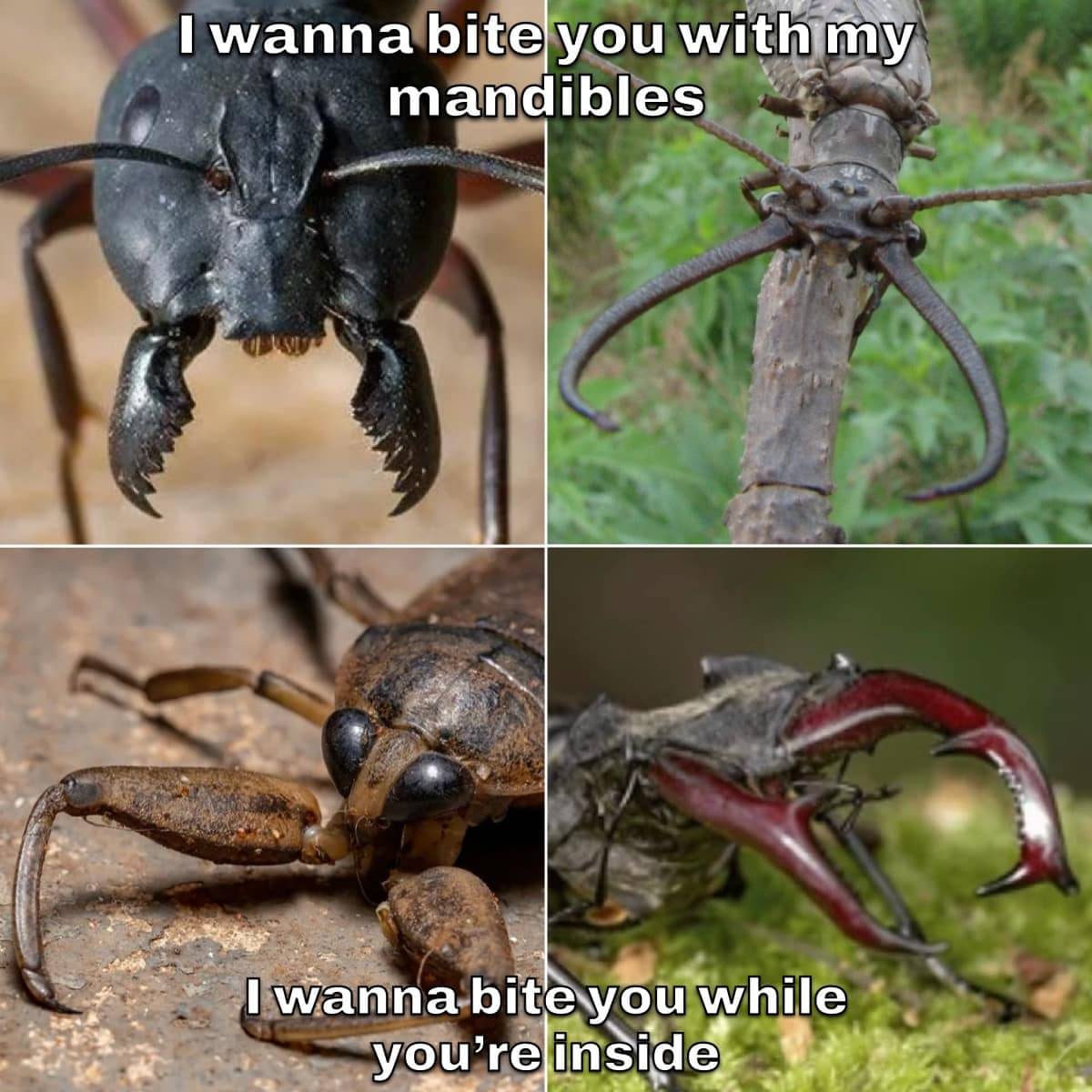this post was submitted on 29 Oct 2024
196 points (95.4% liked)
Science Memes
14245 readers
619 users here now
Welcome to c/science_memes @ Mander.xyz!
A place for majestic STEMLORD peacocking, as well as memes about the realities of working in a lab.

Rules
- Don't throw mud. Behave like an intellectual and remember the human.
- Keep it rooted (on topic).
- No spam.
- Infographics welcome, get schooled.
This is a science community. We use the Dawkins definition of meme.
Research Committee
Other Mander Communities
Science and Research
Biology and Life Sciences
- [email protected]
- [email protected]
- [email protected]
- [email protected]
- [email protected]
- [email protected]
- [email protected]
- [email protected]
- [email protected]
- [email protected]
- [email protected]
- [email protected]
- [email protected]
- [email protected]
- [email protected]
- [email protected]
- [email protected]
- [email protected]
- [email protected]
- [email protected]
- [email protected]
- [email protected]
- [email protected]
- [email protected]
- !reptiles and [email protected]
Physical Sciences
- [email protected]
- [email protected]
- [email protected]
- [email protected]
- [email protected]
- [email protected]
- [email protected]
- [email protected]
- [email protected]
Humanities and Social Sciences
Practical and Applied Sciences
- !exercise-and [email protected]
- [email protected]
- !self [email protected]
- [email protected]
- [email protected]
- [email protected]
Memes
Miscellaneous
founded 2 years ago
MODERATORS
you are viewing a single comment's thread
view the rest of the comments
view the rest of the comments

The lower left is a toe biter water bug with one of the most painful venoms on the planet
I'm getting very mixed answers here (someone else said that's it's legs
They are its legs, however they are heavily modified legs made for strongly grappling prey
Ohhh. Well the big parts that grab stuff are mandibles. They aren't legs but they originate, evolutinarily speaking, from legs. Same with antennae! The parts closer to the head do the eating but sometimes mandibles help with that.
For venomous arthropods sometimes it's the mandibles that have the venom (like spiders, where they are called Chelicerae), for some it's saliva and they use various mouthparts (the water bug uses a proboscus), for some it's their tail end (like ants), etc etc.